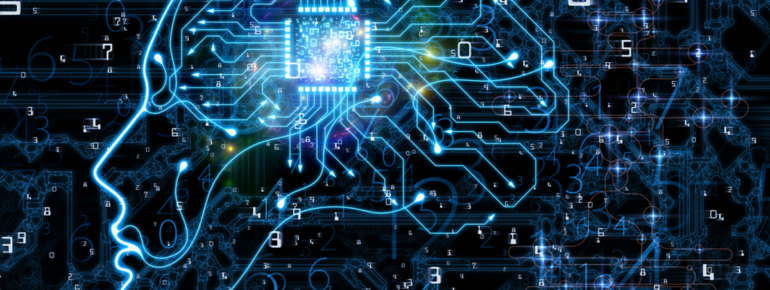Human Capital Management
Beginner’s Guide to AI in HR

Over generations of business, human resource (HR) departments have developed somewhat of a reputation. It’s known as the go-to department for interoffice issues, employee questions, recruiting, hiring and more. What HR has become today often extends far beyond the reasonable workload for one department. In this modern age, technology advancements are fortunately stepping up to ease the burdens HR professionals regularly face. In particular, artificial intelligence (AI) is creating positive disruption in many organizations’ HR functionalities and processes. To help you get ahead of this growing trend, we’ve put together an introductory guide to AI in HR.
What is AI?
Artificial intelligence is a rapidly advancing technology that can be found today in a variety of industries. AI, as it’s defined by Technopedia, is an area of computer science that emphasizes the creation of intelligent machines that work and react like humans. Most commonly, AI systems are designed with the intent of speech recognition, learning, planning and problem-solving. Today, there are two main technologies driven by AI, machine learning and deep learning. Depending on your area of interest, both have remarkable benefits.
How AI can be applied to HR
In its most basic sense, AI is praised for its ability to improve efficiencies and streamline employee processes. By automating repetitive tasks, HR teams can cut costs, operate more efficiently and spend more time on higher-priority tasks. The general collection of HR tasks that are most commonly automated include:
Payroll: Payroll automation systems offer accurate calculations, more organized record-keeping and improved time management.
Timesheets: Manual time tracking is only as good as the employee inputting the time. Automation reduces the risk of errored numbers and allows for greater consistency in payroll.
Recruitment: Recruitment is often an ongoing challenge for companies. Automation improves the entire experience by reducing the risk of human error, improving visibility of hiring status, and with the use of AI chatbots, creating more interactive experiences for candidates.
Benefits: Employee benefit plans are frequently changing, putting a strain on documentation tracking and monitoring. AI allows for automated benefit package education for new employees, automated benefit eligibility processes and more accurate document management.
Tax documents: Automated tax documentation helps ensure you’re filing the correct taxes for your organization as well as maintaining up-to-date information.
Moving forward, as AI continues to advance, HR will consequently transition from a merely administrative department to a significant element in businesses’ strategic success. Assisting in many of the same functions, advanced AI is not only streamlining tasks but improving operations and results.
Decision making: Agility and efficiency are essential for successful HR teams as the competition for strong talent grows. AI technology helps facilitate more informed decision making and therefore the ability to act fast in recruitment and hiring processes. When sorting through employee applicants, for example, AI has the potential to remove common human biases and inconsistencies. This allows for faster, larger-scale and more accurate data analyzing, so HR professionals can act quickly on top candidates.
Written by Maddie Davis co-founder of of Enlightened Digital







